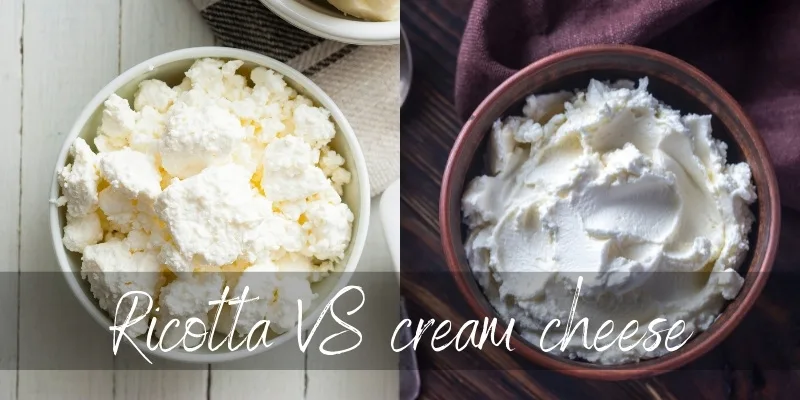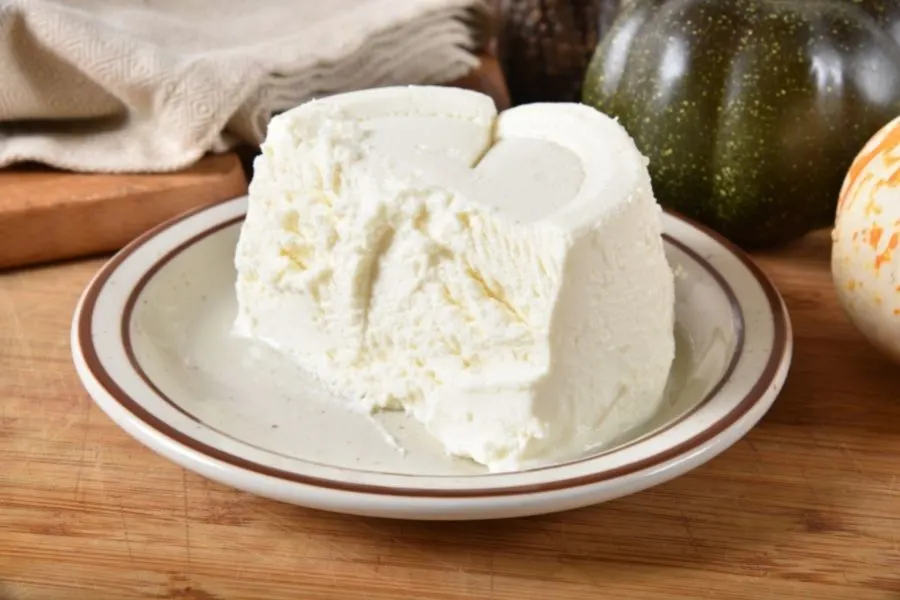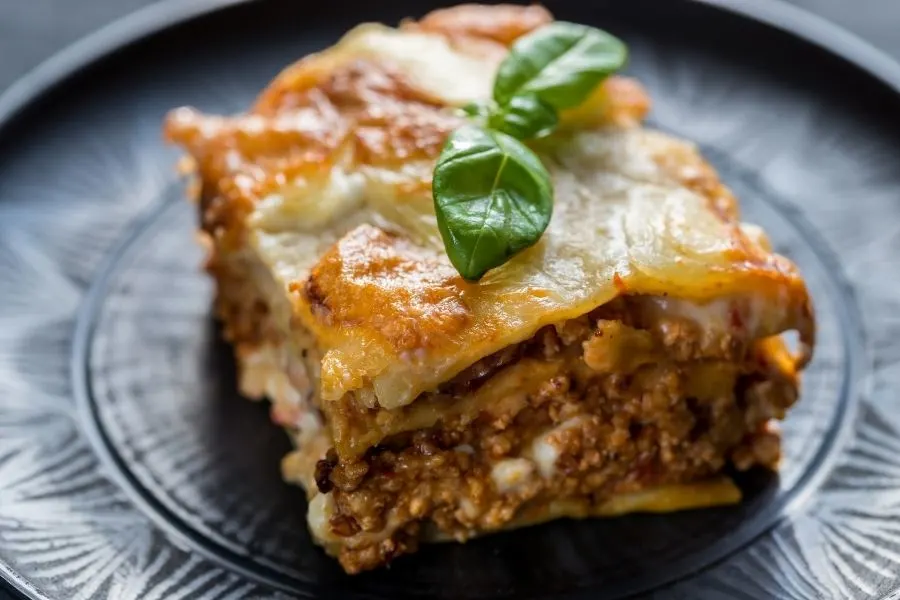Ricotta and cream cheese are two of the most common soft, white cheeses on the market. This means you’re likely to find both of them whenever you’re in a hurry, but you may look at the ingredients and wonder if they’re any different. And depending on what you’re cooking, you may wonder if you can use one in place of the other.
So let’s take a look at ricotta vs cream cheese, and a few related questions as well. Like which one goes better for lasagna, and for cheesecake. Let’s take a look.

Ricotta vs cream cheese
Ricotta is a type of fresh, white cheese with a lower milkfat content than cream cheese, and a much grainier texture. Cream cheese has a softer, creamy texture and a higher fat content because it is made from a mixture of whole milk and heavy cream.
They’re both vaguely sweet and they’re not salted.
What is ricotta ?
Traditional ricotta is made from the whey leftover from making other cheeses. The name means ‘recooked’, because the whey is heated, after the milk was already heated. This makes the leftover proteins bind together, and they form very small, low fat cheese curds. They are then strained (not pressed) and served immediately, or aged for several months.
Read also: Cheese VS Yogurt
Ricotta may be made from any type of milk, from any animal, not necessarily cow’s milk. American ricotta is made exclusively from whole milk, thus has a higher fat content (at least 11%) than traditional ricotta. In this post we’re discussing American ricotta. Where applicable, we state that it’s traditional ricotta.

What is cream cheese ?
Cream cheese is made from a mixture of whole milk and cream, resulting in a higher fat content (at least 33%). This cheese is soft and spreadable, and often contains a thickening agent like carob bean gum or carrageenan. Now let’s take a look at ricotta and cream cheese, compared.
1. Ricotta has a high moisture content
Because ricotta is strained and not pressed, it has a higher moisture content than many cheeses, up to 80%. This is mostly to keep the chees curds together without adding extra cream, like for cottage cheese. In traditional ricotta, the moisture content would be lower and the curds themselves very small.
Cream cheese has a lower moisture content, at most 55%. This results in a denser, thicker cheese, especially when coupled with the higher fat content.
If you’re cooking something where it’s important that the cheese won’t sweat, you may want to go with cream cheese, as it has less moisture.
2. Cream cheese has a higher milkfat content
Because cream cheese is made with cream and whole milk, its total fat content is higher than ricotta, even American ricotta. Cream cheese as at least 33% fat content, while American ricotta is at least 11%. Traditional ricotta has an even lower fat content, but not lower than 6%.
So if you’re cooking something where the fat content matter, choose accordingly. For example in a cheesecake, both cheese will work but the bulk of the flavor will come from the fat. So you may need to add some cream into the mix, if using ricotta.
And this also means that cream cheese will also bake and develop a better texture, because the fat will melt and get you a nice, golden top.
3. Ricotta tends to be grainy
Because ricotta may be whipped during production, it tends to be grainy. Traditional ricotta cannot produce big, thick cheese curds because there are very few proteins left in the whey, and barely any fat.
By comparison cream cheese is thicker and softer, easier to spread than ricotta, due to its thickening agents.
Can you substitute ricotta for cream cheese ?
You can substitute ricotta for cream cheese, as long as your account for the difference in fat content. Cream cheese will have a deeper flavor than ricotta, so you may need to add some extra flavoring if using ricotta.
A plus to this is that ricotta will not override whatever flavor you use, as it’s very neutral.
Is ricotta good for cheesecake ?
Yes, ricotta is good for cheesecake but only if you make a no bake version. In this case you may need something to hold all the filling together, because ricotta can be very crumbly and grainy. You may use whipped cream (small amount) or just some heavy cream to keep everything together.
If you’d like to bake your cheesecake and use ricotta, you will need a few more egg yolks to give it more depth of flavor.
Is lasagna better with ricotta or cream cheese ?
Lasagna works best with ricotta, because it relies on the very mild flavor and high moisture content of ricotta. Cream cheese is drier and thicker and fatter, and you get all of that from the mozzarella you add in your lasagna.

If you want to use cream cheese instead of ricotta, make sure to thin it out with a bit of milk, and remove some of the mozzarella from the recipe. Still, you may find the noodles won’t cook properly so it may be a wise idea to just stick with ricotta.
Read Also: Semolina Vs Polenta
Is mascarpone like ricotta ?
No, mascarpone is made entirely from cream, and as such as a creamy texture, a very smooth flavor, and a very high fat content (at least 50%). It is classed by the FDA as a semi-soft cheese.
Because of its high fat content and a moisture content similar to cream cheese, mascarpone is more like cream cheese than like ricotta. Ricotta is more similar to cottage cheese, only without any added cream to keep the curds together.
So in short, if you ever need to substitute mascarpone, it’s best to use cream cheese instead of ricotta. And if you’re looking to substitute ricotta, look for some low fat cottage cheese.

